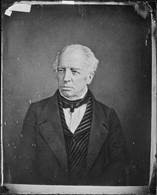 Once upon a time . . .
Once upon a time . . .
I started my last post with those same four words, so I hope you’ll forgive me the repetition. They’re good words for a beginning (though perhaps not in a piece of legal writing!). But why are they such good words to start with? I could wax poetic about creating a sense of nostalgia for a time long past, where wonderful things were possible . . . but that’s not it. They’re good words for a beginning because we all know what comes after them: a story.
Stories are powerful things. For millennia, human beings have told each other stories. We pass down knowledge and wisdom, warnings and inspiration to each other through tales. Myths from cultures all over the world and all throughout history were created to explain natural phenomena, and to try to answer questions about the deeper meaning of human existence. Folk tales and fables teach lessons about hubris and humility, social values and the dangers of greed and other vices. In the Christian Bible, Jesus teaches using parables that will be familiar to anyone who went to Sunday School—the mustard seed, the prodigal son. Why? Isn’t it easier to say, for instance, “Don’t be too greedy!” than to tell the story of King Midas?
 Our March guest blogger with be 1L Jessica Lothman. Jessica is originally from Springfield, Illinois, but now considers herself a local. She is in her second year of the part-time program, is interested in public interest law, education law, and immigration law, and is an avid photographer. Many thanks to our previous guest, 1L Lauren Koehler.
Our March guest blogger with be 1L Jessica Lothman. Jessica is originally from Springfield, Illinois, but now considers herself a local. She is in her second year of the part-time program, is interested in public interest law, education law, and immigration law, and is an avid photographer. Many thanks to our previous guest, 1L Lauren Koehler.
 Once upon a time . . .
Once upon a time . . .